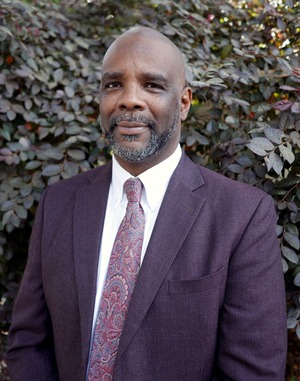Love is a lesson plan. Having visited schools that have achieved astounding turnarounds, I’m convinced of that. When I say this statement aloud, educators often look at me quizzically, as if to say, “Ah, Weaver, where exactly are you going with this?”
And rightly so, the puzzlement, because love is a big, big word. It covers a lot of ground, and it usually has a soundtrack, whether it’s The Beatles or Al Green, playing in the background. So, I understand that when we talk about love in schools, people often think of it as just connecting with the children. That's no small thing. Yes, to supporting, encouraging, and affirming them by providing culturally relevant pedagogy. We need that.
But…
There is an even greater determinant of success: Do we “love” students enough to see and plan for them? Do we intentionally include children in the design of daily teaching? If I am a teacher, that means I am consistently providing safety nets and extensions and ensuring my regular classroom instruction (not just intervention) is tailored to their needs. I will be able to respond, in the moment, with scaffolds because my planning has incorporated your needs, based on the assessments and my informed, professional, observations. And when they give me a curriculum script, I'm breathing you into it.
What It Really Means to Be Student-Centered
Being student-centered means your needs as a learner are consistently reflected in my instruction. That takes time, intentionality, and knowledge of the sciences of reading and learning.
I know this all sounds no-nonsense and hard-edged, but from where I stand and from what I’ve seen in schools across this country, mission statements aren’t enough. I understand diversity, equity, and inclusion and the concern that Science of Reading initiatives seem to be eclipsing culturally relevant pedagogy. Learning how to read and promoting diverse reading should never be an either-or proposition. Both efforts are part of what it means to plan for the child. But I would emphasize that our students won’t be able to know of Dr. Martin Luther King’s greatness, or Maya Angelou’s gifted language, or anyone’s if they can’t read the book.
I understand the need for students to feel a sense of belonging and identity, but if we fail to teach them to read, we guarantee they won’t belong anywhere in society, ever. So when I say love is a lesson plan, I mean it’s a contract between school and learner, that we are going to learn to read. It’s a commitment to let students know they matter in the details of instruction because that's where social justice lies, in the fine print of our day-to-day instruction.
What This Means for Principals and District Leaders
If you're serious about going after all children in your school, classroom, district, or state, you have to make sure the day-to-day lessons being planned include the children who are the furthest from opportunity.
I know that focusing on planning time and structure is not seen as “cutting edge”; it isn’t wrapped in the language of innovation and reform. However, It’s not enough to purchase a core reading program that says it’s backed by the Science of Reading and then hope all student outcomes will improve. Hope is not a strategy. Teachers everywhere are overwhelmed in the face of implementing programs and curriculums. Many of them don’t have the time, experience, or support to use data effectively in their planning. We have to provide strong, sustained professional development so their planning is intentional; and educators recalibrate and hone their instincts for literacy support, which is something that no program can provide.
Now, at the district level, that means that you're not bogging down principals, coaches, and teachers with paperwork and tasks that have no evidence of success. Principals and teachers must plan for children. Nearly as important as having usable materials and good leadership, schools must take ineffective programs and initiatives off their plates. Too often in schools, I see teachers put in a corner, operationally speaking. They are so busy with paperwork or navigating the minutiae of legacy programs that they don’t have time to plan adequately for students who are the furthest from opportunity.
The duty of leadership is to provide space, opportunity, and materials to learn and grow; you are the Head Learner. Admit you don’t have all the answers, but you are committed to giving the staff the time to know and grow. Preparation time is not a talking point, it's central to a teacher, school, and district being able to systematically shift to the Science of Reading-aligned literacy practices—and sustain improvement. There are no shortcuts, and you can’t do this on the cheap. You must give people proven materials and adequate time to prepare for full implementation.
So, that's what I mean by “Love is a Lesson Plan”, and that's why I love teachers so much—because what they're doing on a day-to-day basis is attempting to secure children’s access to their civil right to read. We must ensure educators have the development, time, climate, materials, and leadership needed to serve all kids how they need to be served.
Watch Kareem Weaver's full episode of Literacy Matters: Empowered Conversations to learn more.
About the Author
|
Kareem Weaver is a Co-Founder and Executive Director of FULCRUM and is also the Oakland NAACP's 2nd Vice President and Chair of its Education Committee. Kareem's advocacy is featured in the film The Right to Read. Weaver previously served as New Leaders’ Executive Director of the Western Region and was an award-winning teacher and administrator. He has undergraduate degrees from Morehouse College and a master’s in Clinical-Community Psychology from the University of South Carolina. Weaver believes in the potential of all students, the brotherhood of man, and the importance of service above self. His educational heroine, for literacy instruction, is the late Marva Collins. |

|